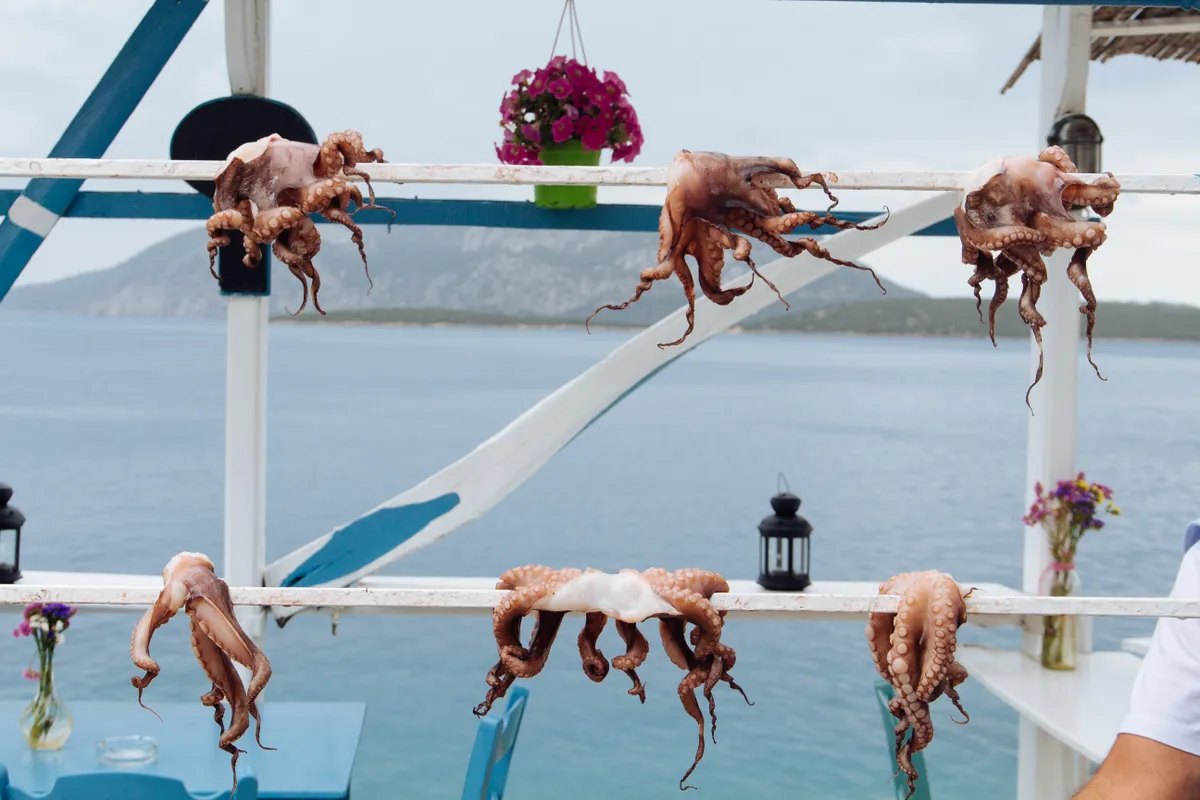The world’s first commercial octopus farm, in the Canary Islands, aims to be fully operational by the end of 2023, and to produce 3,000 tonnes of octopus meat a year by 2026. It’s an appalling concept.
The world’s appetite for octopus is growing exponentially: at least 420,000 tonnes is caught each year (more than 10 times the amount caught in 1950) and annual global trade in octopuses is now worth $2.72bn.
Not surprisingly, most of the world’s biggest octopus fisheries, in China, Japan, Morocco, Mauritania and the EU (mainly Spain, Portugal and Italy), are already over-exploited.
Octopus farms are likely to stimulate a greater worldwide demand for octopus
The owners of the new octopus farm argue that it is the only way to ensure sustainability while satisfying demand. But that’s rubbish. It’s the beginning of a slippery slope – a disaster waiting to happen.
There are three fundamental problems. Octopus farms are likely to stimulate a greater worldwide demand for octopus, which will add to the growing pressure on wild stocks; as with many forms of aquaculture (the fastest-growing food-producing sector in the world) they will hoover up wild stocks of other overfished species (fish, prawns, crabs and mussels) to feed the octopuses – which consume about three times their weight in food a day; and, quite simply, octopus farming is unethical.
Octopuses are about as close to intelligent aliens as we’re ever likely to get. They have three hearts, blue blood, eight sucker-covered arms and nine ‘brains’ (each arm can act intelligently on its own).
They can change colour and texture to match their environment – or their mood – and their boneless, eight-legged bodies have no fixed shape. The largest species, the giant Pacific octopus, has an average arm span of 16 feet and yet can squeeze through an opening just a few inches wide (the only limiting factor is its tough beak).
Octopus is a delicacy – by no stretch of the imagination is it essential to food security
Most of all, they are impressively bright, capable of learning, solving problems, playing and using tools. Indeed, the Animal Welfare (Sentience) Act 2022, which is moving slowly through our own Parliament, specifically includes octopuses as sentient beings.
I think they are among the least-suited animals in the world for commercial farming – and that’s saying something. Yet, where octopus farming is being developed, there are no laws to regulate their welfare or farming practices.
Fortunately, octopus farming is far from easy. The prize is cultivating an animal that grows quickly, reproduces easily and commands a high price, but concerted efforts in Australia, Mexico, Hawaii and Japan have so far failed to solve the myriad challenges it poses.
The delicate larvae eat only live food and need a carefully controlled environment (which is why, until now, octopus ‘farming’ has involved capturing young octopuses in the wild and growing them to market size in aquatic pens).
The adults are highly territorial and solitary by nature and, given that they’re renowned escape artists, clearly do not like being kept in tanks.

Octopus is a delicacy – not a staple food. It’s particularly popular in South Korea (where live animals are cut up and served raw, still wriggling on the plate), Japan, Spain, Italy, Portugal, Mexico and, lately, the USA.
Many other countries eat smaller quantities (about 1,300 tonnes of octopus is consumed in the UK every year). But it’s a luxury product. By no stretch of the imagination is it essential to food security.
The only intelligent solution is a complete worldwide ban on octopus farming. And those affluent consumers will just have to pay more for increasingly scarce, wild octopus (or, better still, not eat them at all). Surely, we’re not going to repeat the mistakes we’ve already made with factory-farmed terrestrial animals?
